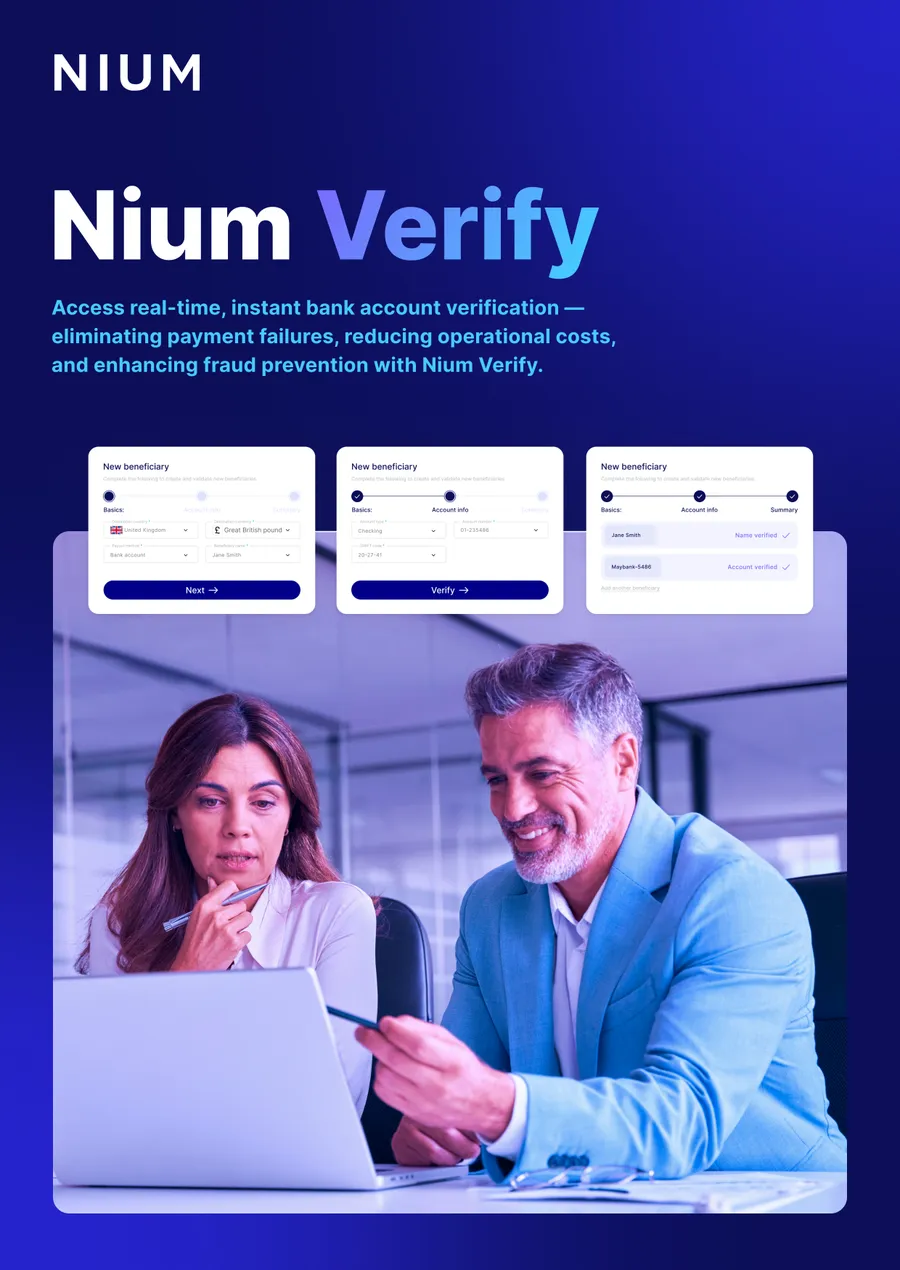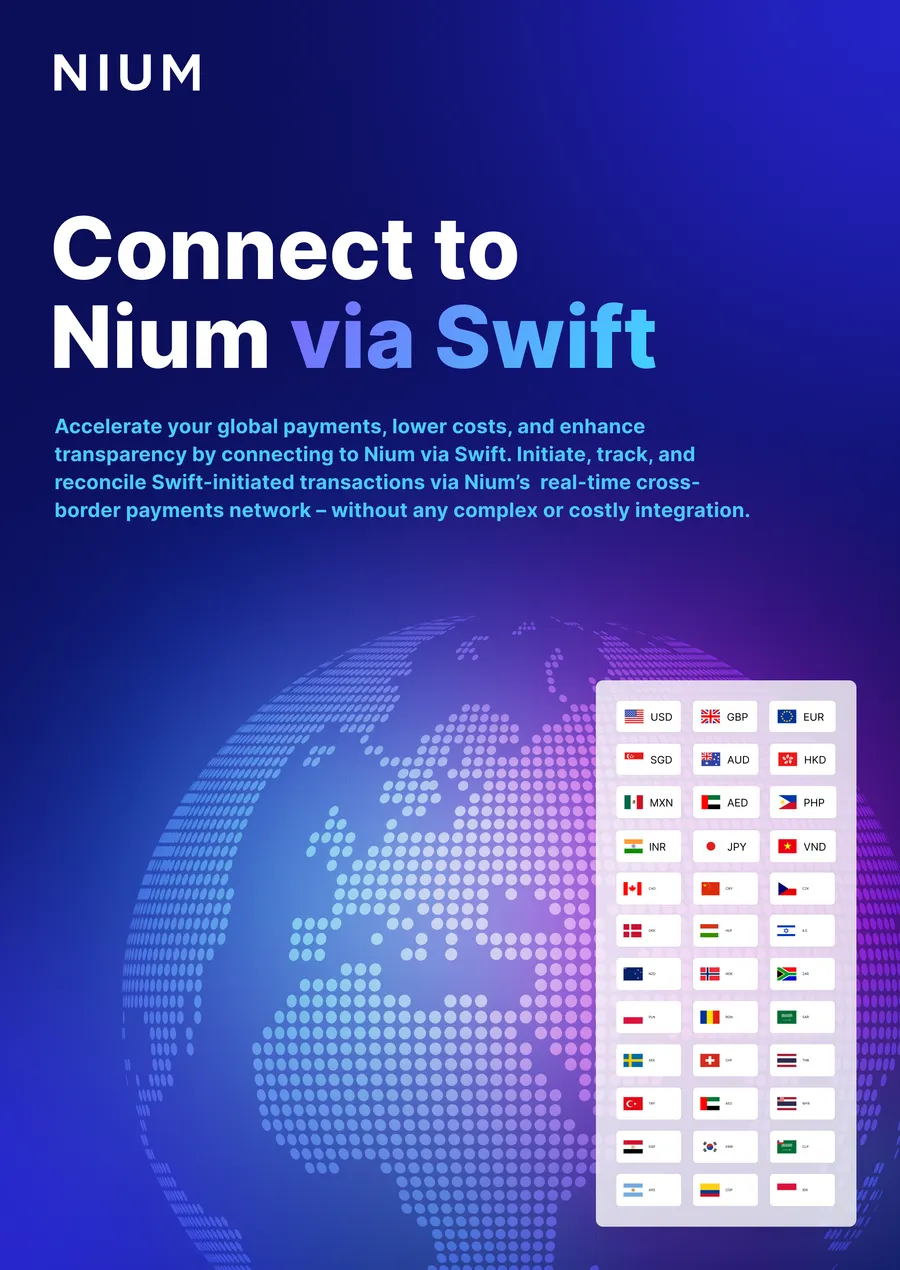As of 7 October 2024, the UK’s Payment Systems Regulator has introduced significant changes to how Authorized Push Payment (APP) fraud claims are managed in the UK. Here's a breakdown of what's changed, why this is important, and how Nium is helping to keep your money safe.
What has changed?
The new UK APP fraud regulation is designed to offer greater protection and increase the likelihood of reimbursement for victims of APP scams.
What is an APP Scam?
An APP scam happens when someone is tricked into making a payment to a fraudulent account. The scammer may pose as a legitimate business or individual, deceiving you into thinking you are making a legitimate transaction. APP fraud is a growing issue, with scammers becoming increasingly sophisticated. These scams can affect anyone, from consumers to businesses.
Examples of Authorized Push Payment (APP) Fraud
- Impersonation Scams: Fraudsters pretend to be trusted organizations, such as your bank or government agency, to deceive you into transferring money.
- Fake Invoices: Scammers impersonate suppliers or service providers and send fraudulent invoices requesting payment.
- Romance Scams: Criminals exploit online relationships to gain trust and manipulate individuals into sending money.
- Investment Fraud: Fraudsters offer fake investment opportunities, often promising unrealistic returns, to trick you into making payments.
- Purchase Scams: Scammers advertise non-existent goods or services online, taking your payment without delivering anything.
- Property Deposit Fraud: Criminals intercept property transaction details and provide false account information for payments like deposits.
Key details of the new reimbursement rules
- Eligibility
You may qualify for reimbursement if:
- The payment was made by bank transfer (via Faster Payments or CHAPS) to a UK account belonging to an individual, microenterprise, or registered charity
- Payment was made after 7 October 2024
- The claim is submitted within 13 months of the final fraudulent transaction
You can report multiple payments made from your account to the fraudster’s account in a single claim. However, the claim must be submitted within 13 months of the date the last fraudulent payment datet ransaction occurred.
- The mandatory reimbursement rules won’t apply if:
- If you are a customer of Instarem and have used Nium services for remittance of money
- You ignored a warning sign from Nium that the payment could be a scam
- You didn’t follow instructions from the police or the payment made was unlawful, for instance you tried to buy something that is illegal
- You did not take the steps needed to meet the Consumer Standard of Caution
- In cases of civil disputes, such as when you make a payment to a legitimate business but are dissatisfied with the product or service received, additional steps may be necessary.
- The payment was sent to an account controlled by you
- The payment was sent or received through a credit union, municipal bank, or national savings bank
- The scam occurred before 7 October 2024
What is the ‘Consumer Standard of Caution’?
The APP fraud regulations allow people to make a claim to their bank if they’ve lost money to APP fraud, though there are certain conditions to doing this.
These conditions are called the Consumer Standard of Caution. Before and after you make a bank payment, there are certain steps you must take in order to lodge a claim for reimbursement. These are:
- Practice Vigilance: Safeguard your account by managing transactions carefully and protecting your personal information.
- Report Issues Quickly: Notify us promptly of any unauthorizsed transactions or suspected fraud to help us address the issue effectively.
- Follow Security Guidelines: Adhere to recommended security practices and warnings, such as using strong passwords and keeping your login credentials confidential.
- Stay Informed: Educate yourself about common scams and fraudulent activities to reduce your risk of being targeted.
- Verify Transactions: Double-check transaction details before completing payments, as errors made during legitimate transactions are your responsibility.
- Timeframes
- Valid claims should be reimbursed within five business days of reporting the scam
- Some claims may take up to 35 business days if additional information is needed
- Limits and Excess
- The reimbursement limit is up to £85,000
- A £100 excess applies to most claims, which be deducted from the amount that will be reimbursed to you. For instance, if your claim is for £1,000, you'll receive £900 back.
How to protect yourself from APP scams
APP fraud can happen to anyone, but there are steps you can take to reduce your risk:
- Always make payments to trusted companies
- Double-check unexpected requests or calls, even if they appear legitimate
- Look out for spelling mistakes, unusual payment methods, or unexpected pricing
If you’re ever in doubt, contact the recipient directly through trusted channels before making any payments.
How do I raise a claim?
At Nium, we're committed to helping our customers navigate these new regulations and protect themselves from fraud. If you believe you’ve been the victim of an APP scam, we recommend taking these steps:
- Contact Us Immediately
Notify us as soon as possible. The quicker you report it, the better the chance we can help recover your funds. Get in touch with us directly at [email protected].
- Always Submit a Claim
Even if your loss is under £100, it's worth submitting a claim via [email protected] as we might be able to recover your money from the account you sent it to. If your loss is above the £85,000 limit and we manage to recover it, we’ll return it to you. Plus, any information about active scams helps us better protect you and other customers.
- Keep Evidence
Hold onto all documentation related to the scam claim. We assess every case individually and will review all the evidence we receive.
What to expect when you report a scam
When you report a scam, we’ll investigate your case using the information available to us. To facilitate the recovery of your funds, we may need to share specific personal details, such as your name, your representatives’ name, and account information, with the receiving banks or payment service providers.
Additionally, we may require further information from you to support our investigation. Please ensure you provide any requested details promptly.
We are committed to maintaining transparency and will keep you informed throughout the process. In certain cases, we may also be obligated to report the scam to the police.
Help keeping you safe
The new APP fraud regulation is a significant step forward in protecting individuals and businesses from the effects of scams. While Nium has always prioritized the safety of our customers, these changes will ensure that, should the worst happen, you are better protected and more likely to recover your funds.
For any questions, or if you suspect you've been a victim of an APP scam, please contact us directly at [email protected]. We're here to help.












